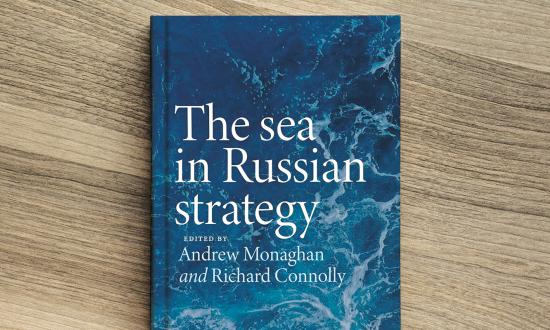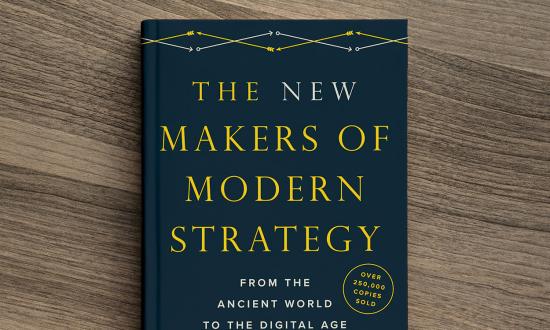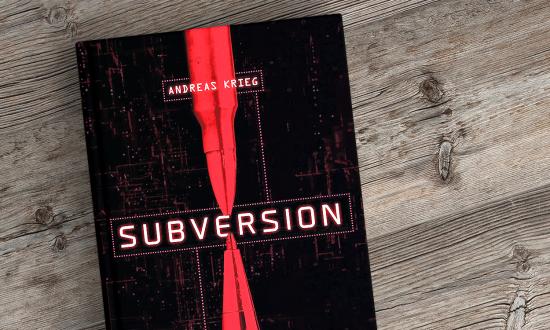Limited Force and the Fight for the Just War Tradition
Christian Nikolaus Braun. Washington, DC: Georgetown University Press, 2023. 241 pp. Notes. Biblio. Index. $44.95.
Reviewed by Dustin League
Christian Braun’s new book explores the ethics and morality of nations employing limited military force toward national security interests. It comes out at an interesting time, when the Russian invasion of Ukraine has brought large-scale conventional warfare back to the forefront. Braun acknowledges this in his introduction and provides context: The Russia-Ukraine war notwithstanding, nations have become more inclined to use smaller-scale, limited force rather than war to pursue their national goals.
Tactics such as targeted killings and limited strikes are more common today than invasions, but the ethical studies around the former are less robust. Braun makes a case for developing a theory of jus ad vim (the just use of limited force) that matches the well-established jus ad bello (conducting war in a way that limits human suffering). In Limited Force and the Fight for the Just War Tradition, Braun applies the theories developed by Saint Thomas Aquinas for just war to modern, real-world case studies of limited force and explains how such operations can fit within a moral and ethical framework.
Braun devotes the opening section of his book to laying foundations and educating the reader on what work has been done on limited war before him. This is a useful grounding, and Braun is succinct and clear when explaining the existing scholarly work.
His second section provides an overview of Thomas Aquinas, a foundational thinker of just war theory, and expounds on his utility to the limited war theory Braun develops. Again, this is a useful and well-written section that could be lifted wholesale for anyone needing a primer on just war. Unfortunately, Braun also devotes a number of pages to justifying his approach—the use of casuistry and case studies—to the work. Such extended defense of methodology can be a slog for a more general audience.
Once through these sections, the reader is finally able to dive into the meat of Braun’s concepts. He explores the ethics around limited force using examples that will be familiar to almost all modern readers: the targeted killing of Osama Bin Laden and the airstrikes employed by the Biden administration in Syria. Braun’s accounts are lucid, and the book is at its best as he dissects the decision-making behind these operations, their execution, and their actual and intended effect on national security. The case studies are an excellent bridge between the academic and the operational, providing clear guidance for decision-makers on when force is justifiable.
Braun’s work is a valuable contribution to the realms of national security and military ethics. It explores an underserved topic, bringing erudite scholarship grounded in an understanding of real-world operations. It is highly recommended for security studies scholars and for leaders—both military and civilian—involved in making decisions on when and how to employ military power.
Mr. League is a military operations analyst and former U.S. Navy submarine officer.
We Don’t Want YOU, Uncle Sam: Examining the Military Recruiting Crisis with Generation Z
Matthew Weiss. Orange, CA: Night Vision Publishing, 2023. 221 pp. Notes. $14.99.
Reviewed by Lieutenant Colonel Dillon Fishman, U.S. Marine Corps Reserve
Fresh fighting in the Middle East, continued conflict in Ukraine, and simmering tensions across the Pacific all underscore the importance of military readiness. With the rising prospect of conflict in three theaters, is the United States ready? Recruiting shortfalls pose a growing risk, and fielding a force capable of facing today’s threats may require real change. To that end, Matthew Weiss offers 21 proposals to change the military, largely designed to appeal to Generation Z.
An Ivy-League-educated Gen Z Marine Corps officer with time in consulting, Weiss brings an unusual background and insider bona fides as he writes both to, and for, Americans born between 1997 and 2012. He argues for changes spanning from accession processes to benefits. For example, he asserts that the military should harness the power of social influencers, shorten military service contract obligations, permit marijuana use, and leverage its capabilities to address the environment. He also contends that flexible work options, coliving with civilians, and niche occupational communities would better suit his generation. Some of these ideas are clearly more palatable—and realistic—than others.
Weiss’s best work is incisively questioning health restrictions—a top driver of disqualifications. He points out that many military health standards are anachronistic, arbitrary, and myopic. It is common knowledge among service members that recruiters “coach” people to pass the battery of questions about everything from asthma to eczema. Waivers abound, though they are often granted disparately. And the standards themselves are applied mechanically, treating infantrymen, cooks, administrators, and supply clerks uniformly.
Though the entire health accessions process requires scrutiny, Weiss wisely devotes particular attention to mental health disqualifiers. The confluence of three factors makes it an especially sound place to begin. First, the embattled MHS GENESIS military health records system sweeps up files of applicants dating back decades, expanding the scope of scrutiny for historic ailments. Second, Gen Z’s greater propensity to report mental health issues means many may be precluded from service based on minor childhood anxiety, or other issues that do not truly limit their ability to serve as adults. Third, providers have been prescribing psychotropic drugs widely, creating additional barriers despite the demonstrated safety and prevalent use of such drugs. The gauntlet of medical restrictions needs urgent attention.
Another strong recommendation is about widening the recruiting pipeline by considering service mandates. Prioritizing service options that directly support national security, while allowing alternatives such as working in schools or hospitals, could strike a viable balance between a draft and expanding manpower deficiencies.
Weiss deserves credit for original thinking; however, a clear drawback is that many of his proposals would likely require painful legislative, policy, and organizational change. The Defense Department is a massive bureaucracy, and prior reforms such as implementing the Blended Retirement System suggest change will be hard. Critics may be tempted to dismiss Weiss’s proposals, but current manpower deficits and ominous trendlines indicate that modernizing military recruitment should not be done incrementally.
This brisk read is a welcome addition to the ongoing conversation. Senior leaders, in particular, would be well advised to carefully consider novel suggestions as they examine one of the nation’s most pressing problems.
Lieutenant Colonel Fishman, PhD, JD, is currently deployed as the Deputy Staff Judge Advocate, Combined Joint Task Force–Operation Inherent Resolve.
2054: A Novel
Elliiot Ackerman and Admiral James Stavridis, U.S. Navy (Retired). New York: Penguin Press, 2024. 304 pp. $28.
Reviewed by J. D. Kristenson
The futuristic novel 2054 picks up in a well-constructed world where 2034 (Penguin, 2021) left off. The reader is quickly reintroduced to familiar main characters, but the narrative has a distinctly different tone from the speculative military fiction of the first book in the trilogy. Whereas 2034 was defined by war with China, the subsequent 20 years have been marked both by scientific progress and political devolution. 2054 could be a sequel to futurist Ray Kurzweil’s The Singularity Is Near (The Viking Press, 2005) as much as anything else.
The reader learns indirectly of the “twin pandemics of the late 2030s” and proxy wars not between nation-states, but between biotech and quantum laboratories as the book takes on the challenge of exploring Kurzweil’s theory of a coming technological singularity. First predicted in 2005, the singularity would be marked by exponential technological growth and the emergence of an artificial superintelligence that surpasses human intelligence in all aspects—cognitive, emotional, and creative. By extrapolating Moore’s law, Kurzweil famously predicted that the singularity would come in the year 2045. The advancement in artificial intelligence over the past year alone would suggest that we might be on an even more accelerated curve.
Set against the backdrop of a techno-thriller, the book has an entirely different layer of intrigue as the reader follows the movements of a group of savvy political operators in President Angel Castro, Representative Trent Wisecarver, and Senator Nat Shriver. The pace of technological change continues to apply pressure along the political fault lines already clearly visible in society today. The two-party system remains, but not in its current instantiation. In a historical nod to the Democratic-Republican Party of some 200 years earlier, the current two political parties merge to form the “Truther Party” to stem the rise of the Dreamers of the “American Dream Party.” The book paints a dark portrait at times, as when it notes the foretold eruption of violence has been brewing for years. It has been built, brick by brick, through successive economic collapses, pandemics, and the dysfunction that had become American life.
This is where the experience of Elliot Ackerman and retired Admiral James Stavridis as military practitioners, scholars, and statesmen really shines. They draw a straight line of historical overreach in the context of the failed coups of the Reichstag in 1933 to the Kremlin in 1991 to the U.S. Capitol in 2021.
Readers are confronted with a country that is being torn asunder along Truther-Dreamer lines. The desperate spirit of the times is marked by the quote: “Truth or Dream. There’s no place in between, nowhere to stand if you’re not with one or the other.” Perhaps we have not had to choose yet, but like the singularity, that choice is coming.
Mr. Kristenson served in the Navy for 25 years. While in uniform, he was a surface warfare officer and an Olmsted Scholar (China). He is currently a vice president of transformation with McKinsey & Company in the New York office.









